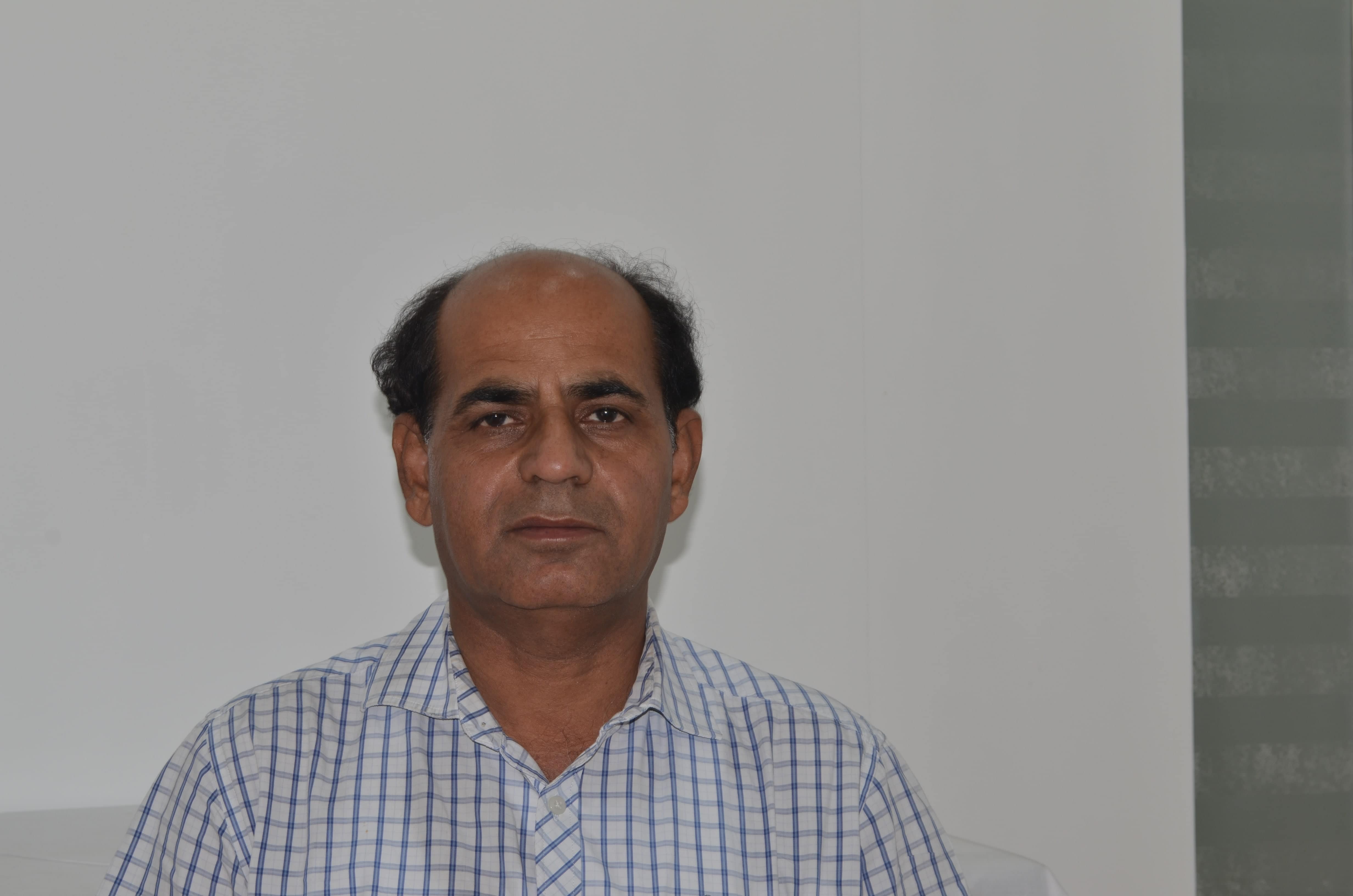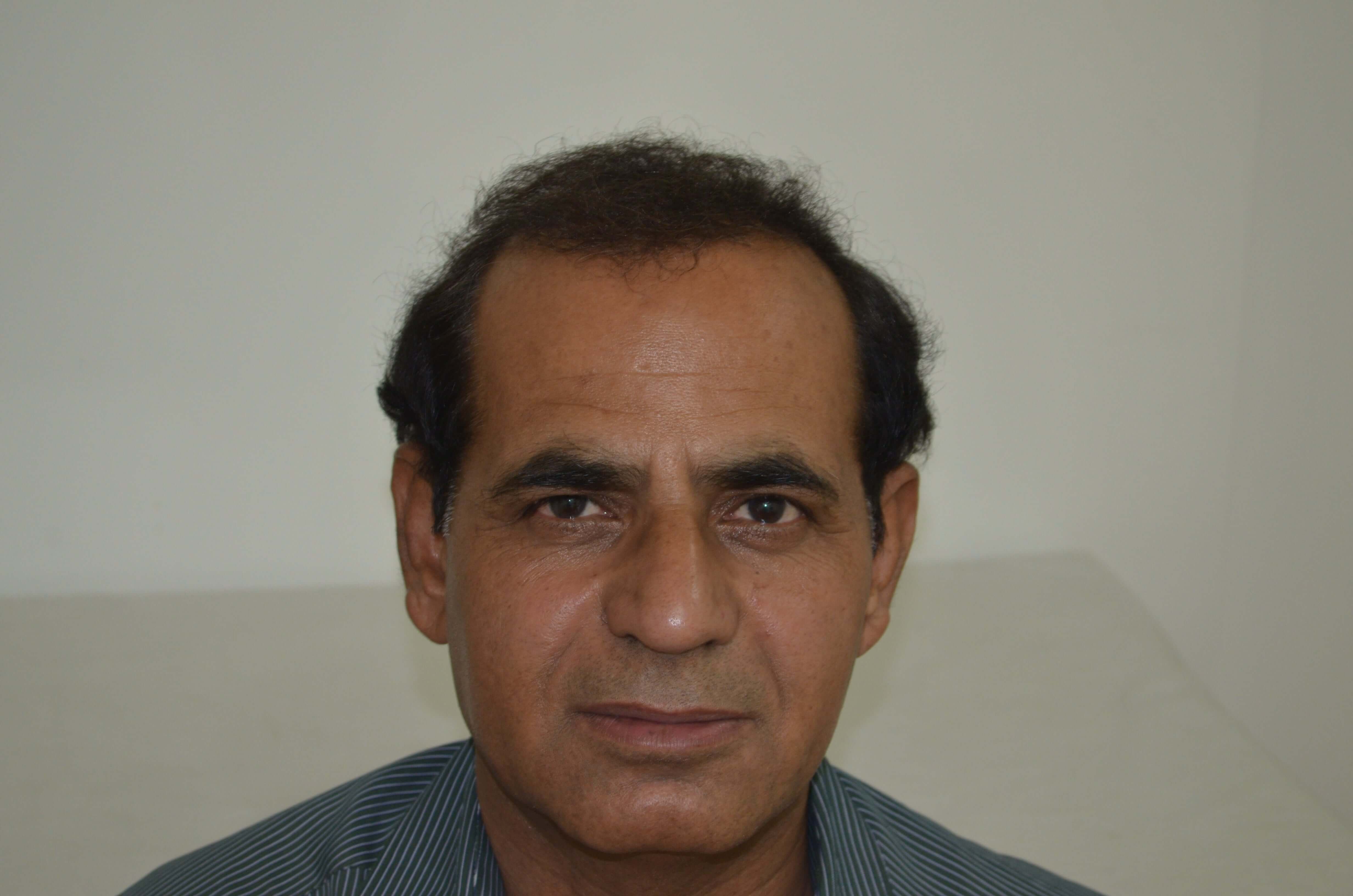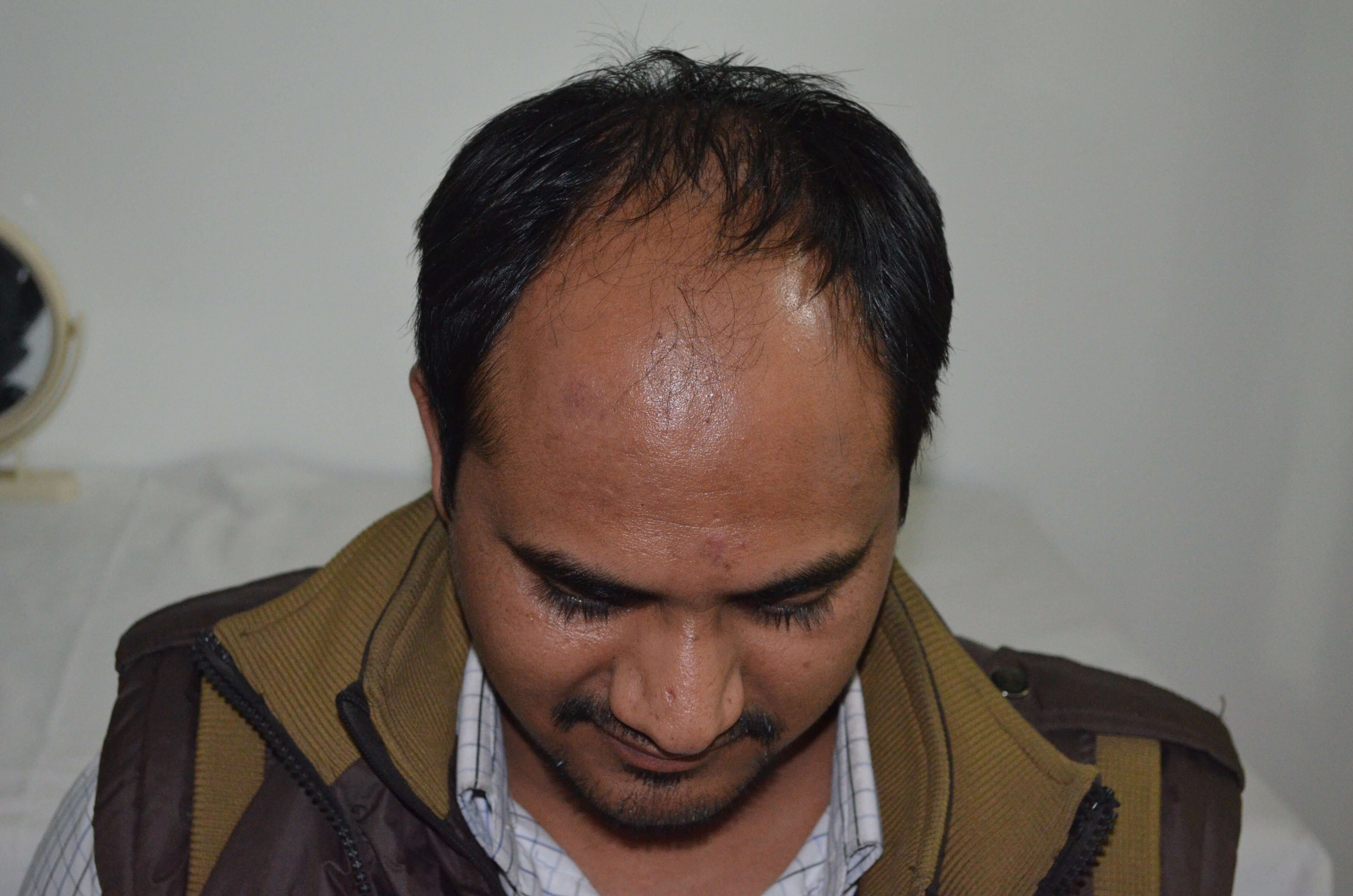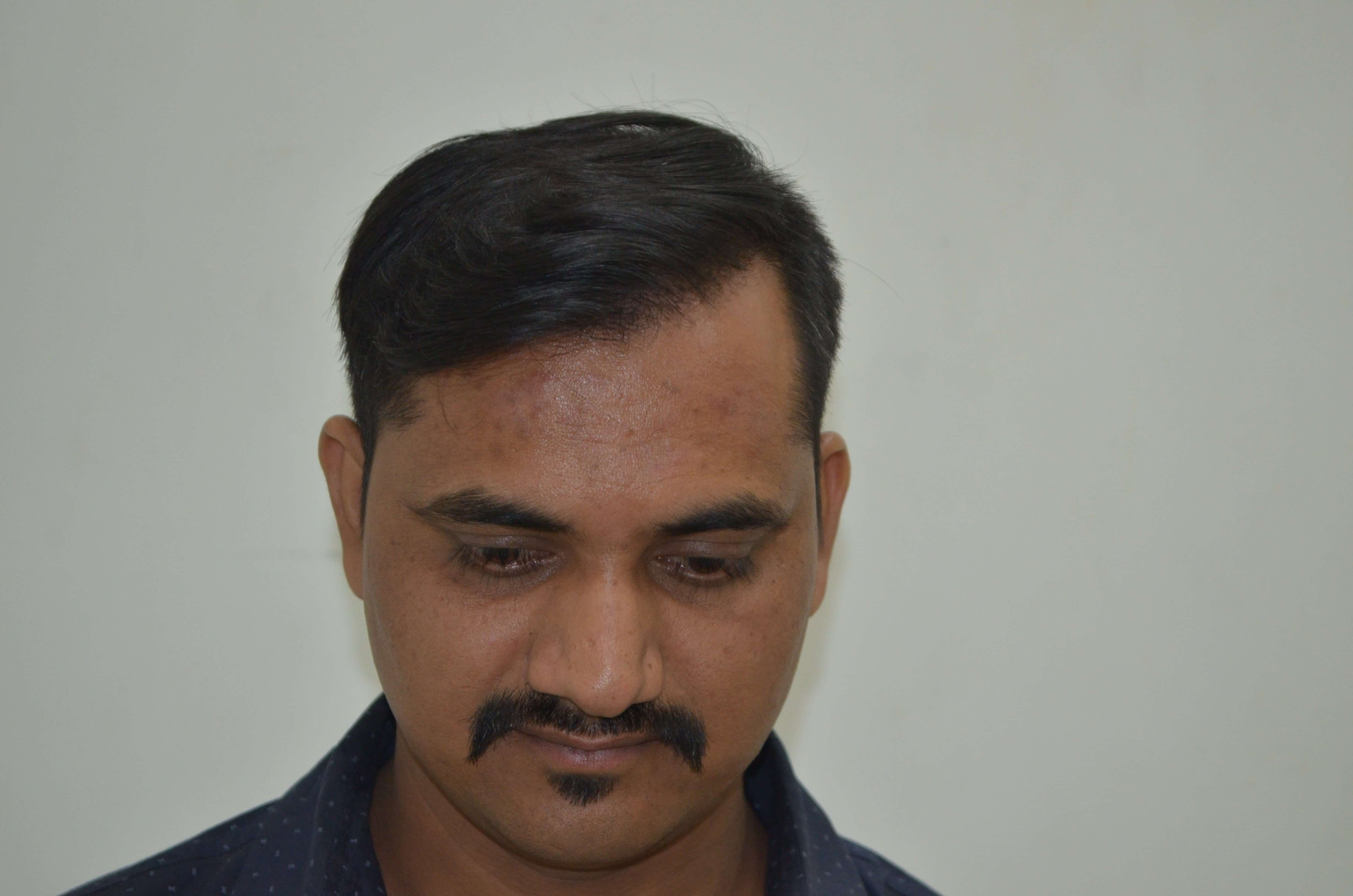What is Hair Transplant ?
Hair Transplant
- Hair fall leads to receding hairlines and badness which adds years to a person appearance.
- Shying away from social interaction, decreased self confidence, and feeling handicapped while dating or for matrimony are common fallouts.
- Hair loss is even more distressing in women who are traditionally accustomed to a full head of lustrous luxuriant hair.
- Hair transplantation is the only method which restores lost hair as well as a natural youthful appearance....
- BUT ONLY WHEN DONE BY RIGHT PERSON
- Hair restoration or hair replacement is popularly known as hair transplant.
- Alopecia, commonly referred as hair fall, is an everyday concern that affects both men and women.
- There can be various reasons for hair fall like stress, different diseases, undergoing medication or treatment and genetic factors. Few of the above mentioned reasons are for the time being and can easily be reversed. But eventually, a lot of people undergo permanent hair loss which can lead to lack of self-esteem and confidence.
- Hair transplantation surgery is a great option for people who are suffering from baldness or hair thinning issues.
- Losing few strands of hair routinely either during hair wash or on your hairbrush or a pillow is pretty normal since it is a part of the wear and tear of the hair growth cycle.
- The telogen stage of the hair growth cycle is the resting stage and hair loss tends to occur mostly during this stage. During the telogen stage, the hair relaxes its hold on the root that leads to the bulb of the hair to move closer to the surface of the scalp.
- As per the study conducted by the American Academy of Dermatology, men and women tend to lose on an average almost 50 to 150 strands of hair each day.Out of the total hair loss mostly 10% of the strands are expected to be in the telogen stage. Sometimes even a higher degree of hair loss i.e. up to 250 strands on the day especially when you wash your hair, can be considered as extremely normal.But if the hair loss goes beyond the routine shedding, then that can be pretty alarming and a matter of huge concern.
Men and hair loss:
The actual peak period of hair fall for men begins in the late 20s or early 30s.But maximum men are known to undergo noticeable hair loss by the time they are 50 years of age.
For men who are undergoing unusual hair loss or hair fall, the problem should be addressed as early as possible especially when the hair fall is in its early stages. Immediate curative action will help reduce the extremity of hair loss and also simultaneously suitable hair regrowth treatments can be suggested.
But in cases where there is the occurrence of baldness, the only way for hair recovery is treating the affected area with hair transplant surgery.
Women and hair loss:
Fortunately for women, the incidence of hair loss is not as frequent as with men.Women generally suffer from hair thinning issues rather than baldness. On an average one out of every four women is known to suffer from hair thinning.Hair thinning can be a big reason of concern in women and it might have a negative impact on their self-confidence and can sometimes lead to depression. The market offers a wide range of products for thinning hair scalp restoration. But mostly the core cause can be cured only to a limited extent and not fully.
In women as well, for cases with the occurrence of baldness, the only way to hair recovery is treating the affected area with hair transplant surgery.
Stages of hair loss: THE NORWOOD SCALE
The Norwood scale consists of a stack of images which indicate the various different stages of hair loss.
The different stages are described as follows:
- Class1. Marginal or minimum hair loss.
- Class 2. Hair loss near the temples.
- Class 3. The preliminary stage of hair loss where treatment is necessary for recovery.
- Class 4. Hair thinning and evident bald patches observed.
- Class 5. Hair thinning of the crown are with initial stages of baldness.
- Class 6. The top or crown area of the head is completely bald and hair thinning at the sides.
- Class 7. The last stage of baldness with minimum hair seen on the scalp.
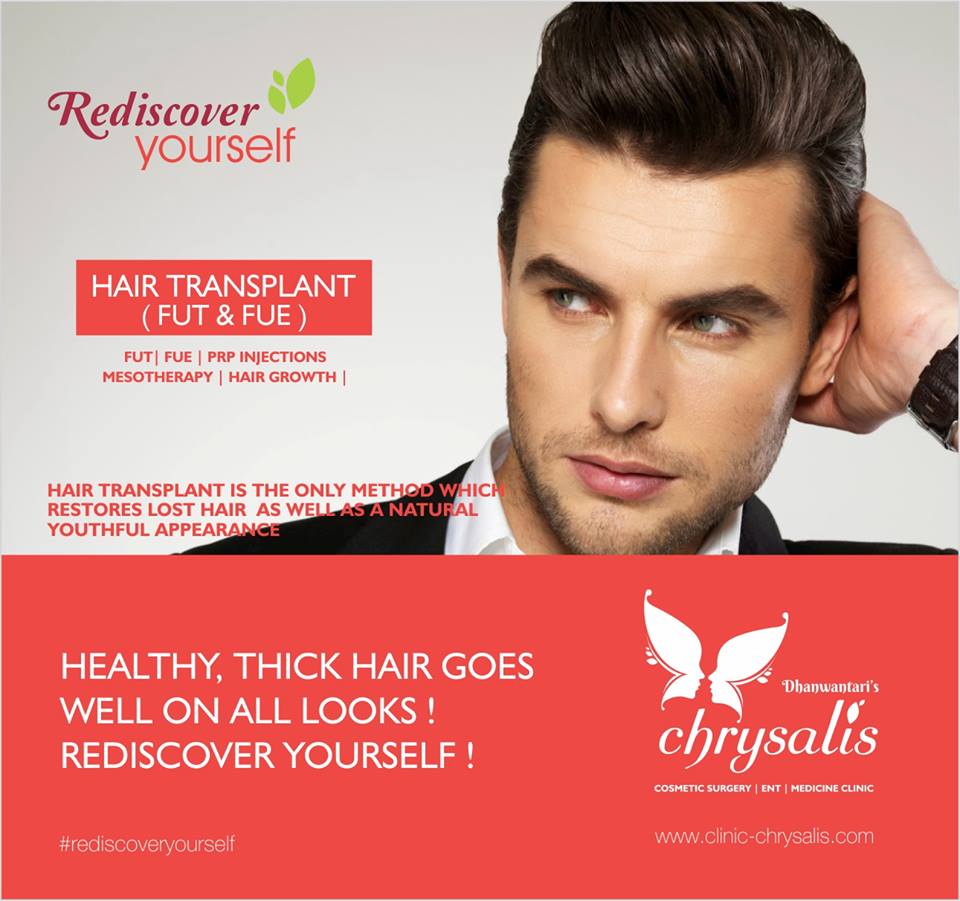
It is extremely important to know the point at which the hair treatment needs to be started.
Men in their late 20s or early 30s can wait for a few more years to undergo a hair transplant.
Since there are chances that the true hair fall may happen over a period of time and then they might again have to undergo another session of hair transplant surgery.
One should have realistic expectations from the procedure before undergoing the transplant. The success of the surgery completely depends on the condition of the hair follicles which will serve as a donor. So basically if the hair loss is not very severe and the donor hair follicles are healthy then the surgery can have a satisfactory outcome.
EMI Options Available from Bajaj Finserv

Who Needs It?/ Candidature For Hair Transplant
Who is the best candidate for HAIR TRANSPLANT ?
- If you have a receding hairline
- If you have thinning hair, and your hair loss is not result of any treatment or stress
- If your hair loss is permanent but you have adequate hair growth or sufficient hair follicles which can be used for transplant
- You know that treatment may take several months or even a year.
- If you have bald spots
The following are some common reasons why you may want to consider hair transplantation:
Eligibility to undergo a HAIR TRANSPLANT :
- Any of the above mentioned reasons makes you a suitable candidate to undergo HAIR TRANSPLANT , But to be an eligible candidate for surgery you should also fulfill the following criteria:
- Every surgical procedure including plastic or cosmetic surgery involves certain risks. You should undergo a HAIR TRANSPLANT only if you have a medical requirement or you feel that the particular surgery will enhance your quality of life.
- You shall be a good candidate for the HAIR TRANSPLANT if you are healthy, you have realistic expectations from the outcome of the surgery and you are aware of all the risks associated with the procedure.
- You cannot consider undergoing a cosmetic surgery if you have serious health issues like diabetes, heart diseases, high blood pressure, bleeding disorders like haemophilia or depression.
- You shall not be a good candidate for the HAIR TRANSPLANT if you smoke or drink too much alcohol.
- You should have positive attitude!
- You expectations from the outcome of the surgery should be realistic.
- You should be ready to miss at least a few weeks of normal activity.
Benefits Of Hair Transplant
- Procedure is time consuming, treatment may require months or a year for regrowth of hair.
- Consistency of hair growth cannot be guaranteed!
You may not need wig!
Hair transplant is a kind of permanent solution
PHYSICAL APPEARANCE:
YouthfulnessAgeing is a natural process which everyone goes through. Visible wrinkles, fine lines, blemishes are signs of ageing. Such skin flaws makes you look tired or aged. But with HAIR TRANSPLANT like suitable treatment one feels younger, healthier and rejuvenated.
OTHER OPPORTUNITIES
Studies do suggest that people that are more attractive benefit in their personal as well as professional lives.
Studies have also found, good looking people have a higher probability of getting promotions and making more salary.
A 2012 study published in Applied Financial Economics revealed that good looking real estate agents were able to sell properties at a higher price than agents that were average looking.
Disadvantages
Hair Transplant Procedure
Hair transplantation procedure:
There are several hair transplant protocols depending upon which area of the scalp is affected and needs to undergo treatment.Irrespective of the methodology used for transplant; the basic principle is a removal of healthy hair follicles and grafting them to the affected or damaged area. Mostly the donor site is the head. A local anesthesia is given to the patient at both the donor and recipient areas.Sometimes there can be a requirement of oral or sedatives. The donor area with healthy hair follicles is selected, carefully removed and the scar formed is conveniently covered up with existing hair. The donor scalp removed is then segregated into almost 1000 of tiny little segments which contain single/several hair. The segregated pieces of donor scalp are then carefully grafted on the affected i.e the balding or hair thinning region.Other common methodology for hair transplant includes relocating hair as a flap of scalp skin which consists of thousands of hair follicles. The flap of removed hair is then placed on the affected area.The most challenging task of the surgery is to maintain uniformity of the scalp and simultaneously to cause minimum pain and damage. The surgery can last from around 2 to 8 hours depending upon the intensity of hair loss and the amount of hair that need to be transplanted.
What are your options?
Strip Harvesting / FUT (Follicular Unit Transplant)
In a FUT (Follicular Unit Transplant) method, A strip of hair generally removed from the back of the head. This strip is dissected into small pieces to implant over recipient site. This method is faster than harvesting and implanting hairs from various locations.

Follicular Unit Extraction (FUE)
In this method small groups of hairs are harvested from various locations of head and then implanted into recipient sites. This method is time consuming but there is less bleeding, scar are small and scattered all over head and no sutures needed!
Associated Risks
Fortunately Hair transplant is known for less complications. You need to discuss with Doctor regarding risks involved in the procedure.
Risks specific to hair transplantation are as follows
Inflammation may occur in hair follicles
Hair follicles may get infected
Hair transplant may be fail and sudden hair loss occurs of transplant areas
You can minimize certain risks by following the advice and instructions given by doctor both before and after your hair transplantation.
Severe side effects:
Any surgical procedures carries a certain amount of risk, which may include excessive swelling, bruising or bleeding , wound becomes infected, delayed healing of wounds, numbness, breathing difficulties, unfavourable scarring, extrusion of implants or sutures, pain, and the need for revision of the surgery.
Worsened Self Image:
Cosmetic surgery is not necessarily a purely aesthetic choice few choose it out of low self esteem and depression. If this is the true intention behind the surgery, than you will most probably never feel better after surgery because the underlying problems will still be unresolved.
All in all, however, if complications are few and the benefits far outweigh the risks then Cosmetic Surgery is a procedure that can change your life for the better.
Preparing For Hair Transplant
If you are considering HAIR TRANSPLANT , it is important to take the time to determine why you want the surgery in the first place. If you have a medical need, or if you truly feel that hair transplant will improve your quality of life, then you are a good candidate if you meet the aforementioned criteria.
While some people think that HAIR TRANSPLANT is just a cosmetic procedure, it is in fact a medical procedure required for some people. HAIR TRANSPLANT is done, not just to enhance your appearance but to also contribute to your overall health. Although having a HAIR TRANSPLANT is common for celebrities and those who work in the limelight, certain life circumstances can force you to go under the knife. Here are some medically-necessary reasons that require you to have HAIR TRANSPLANT .
Appropriate Consultation
- The most appropriate way to consider your competency for any kind of plastic surgery is to schedule an appointment with a proficient surgeon.
- During the first encounter the doctor will try to understand why you feel the need to have a surgery and also what are your expectations from the outcome of the surgery.
- The physician will evaluate your medical history; inquire about your current medication and medical condition. He should also be aware of everything you take, including vitamin supplements or herbal products since they might interfere with other medicines used during surgery. The surgeon might ask you to perform blood tests and a few general lab tests to monitor your current health status.
- The surgeon will perform a physical exam, to have a close look at the skin, associated muscles and bones, their quality and the kind of changes that can be made. Surgeon might also suggest an additional surgery which will enhance or compliment your look,
- and last but not the least; the physician will assess your mental fitness to check whether you are ready to undergo the surgery.
RECOVERY TIME
- Recovery is basically the time required to get back to a relatively normal routine.
- Patients who wish to undergo HAIR TRANSPLANT must plan for time off to heal and to be comfortable being seen in public.
- The healing time can vary from person to person and will also depend on the type of surgery to be performed.
- It can take up to two three weeks to return to work and perform everyday activities. After consulting with the doctor, People can utilise this time to go on a vacation or nurture themselves.
THE OUTCOME:
- Sometimes the HAIR TRANSPLANT doesn't produce the results the patient imagines. This gap between imagination and reality may frustrate patient.
- Expecting unrealistic results, like the surgery will make you look like a Hollywood or Bollywood star and automatically solve all of your problems, can be a significant drawback to having cosmetic procedures.
- To have a better experience, it is extremely important to consult a qualified doctor before planning the surgery and develop a rational idea of what the end result will look like.
After Effects Of Surgery
You need to ask your doctor about side effects of the treatment. FOllowing list is general and effects may vary based on surgery
- Pain:
- Swelling:
- Discoloration
- Numbness
- Bleeding
- Depression
There are chances of having mild to moderate pain and discomfort post surgery. The pain can be easily regulated with oral medications.
The distress and pain should reduce within 72 hours after surgery. A reasonable increase in pain post 72 hours should prompt you to contact the doctor.
Swelling can differ from patient to patient. It might increase during first three to four days before subsiding.
Things that can be done to reduce swelling include keeping the head elevated as much as possible; avoid bending over or lifting heavy objects.
Prolonged sun exposure should also be avoided for the initial two to three months.
Most bruising and discoloration resolve within the first two to three weeks. Make up can be applied to cover up the discolouration when been seen in public.
The body part that undergoes the surgery can be numb for few days. The feeling of numbness is normal and shall reduce over upcoming weeks. Unusual sensations and moderate discomfort can persist while the nerves are regenerating over time.
Sometimes bleeding can occur, post surgery. You can lie down with your head elevated but if the bleeding still persists at this point, it would be advisable to consult your doctor.
It is perfectly alright for patients to go through a period of mild depression after the cosmetic surgery as after some days or weeks which depends on surgery, patients generally becomes anxious and expects the results when swelling and bruising still persists. But the patient should realize that it is a temporary condition and things are bound to improve over a period of time.
Post Surgery Do's And Don'ts
Ask your doctor. for better and suitable guidelines. Following are the general instructions which should help you get the best results from your surgery.
Post Surgery do’s and don’ts:
- No vigorous exercise, contact sports and running for minimum of two weeks.
- No lifting heavy objects for at least 3 weeks.
- If you have face, neck related treatment then
- Avoid pullover clothing for two weeks especially if you have undergone a face surgery.
- Bypass hard chewing foods for a few days.
- Avoid yawning and wide mouth opening for two to three weeks.
- Avoid laughing, smiling, or other facial expressions that need a lot of movement.
- Use a soft bristle toothbrush to brush your teeth.
- Avoid driving a vehicle for a few days after surgery.
- No swimming for at least two weeks after surgery.
- Prefer using a mild soap and shampoo while taking a shower.
- It is essential to maintain the tape and cover on the surgery to keep it dry. Once the doctor advises to remove the tape you can to gently wash your surgery area twice a day to help reduce oiliness.
- You should be prompt enough to contact the doctor immediately, for any signs of bleeding that persist for more than ten minutes, infections, redness, swelling, fever, pain etc.
Seek Medical Help
CALL +91 7391097833 or Expect a call from us,
CALL THE OFFICE PROMPTLY IF YOU NOTICE ANY OF THE FOLLOWING:
-
Development of a temperature elevation exceeding 100 degrees.
-
An unusual amount of bleeding from the surgery area
-
Significant reinjury of the surgery area
-
A significant increase in pain even after taking your prescribed medication
In such situations, we expect you to call to the clinic even after office hour, Please do not hesitate to call us or present yourself to the emergency section of the clinic for evaluation.
Finally
Patients who wish to undergo a cosmetic surgery must plan for time off to heal and to be comfortable being seen in public. The healing time can vary from person to person and will also depend on the type of surgery to be performed and the results are worth the wait. For some procedures swelling remains for four to six weeks and healing process may continue for the first year. I will follow you through this entire process, but you need to keep patience. Please do not hesitate to ever contact our office.
For any queries regarding Hair Transplant please contact
Dr. Salil Patil
Dhanwantari's Chrysalis
Third Floor,Bhondve Corner building,
Ravet-D.Y.Patil College Road,Ravet
Pune-412101
Call Us: +91 98346 55013
Enquire Us Today
Our Medical Team
Our medical team comprises highly accomplished and dedicated doctors,nurses,physicians. Our doctors prepares personalized treatment plans considering patient’s persona which truly integrates whole person.
Cost
Since the recommended cosmetic surgery will differ from person to person, the overall cost of treatment can also vary depending on numerous factors.
Patients should discuss the total cost of surgery with their surgeons.
Cosmetic surgery is generally not covered by any medical insurance. However, once in a while, if there is a medical condition related to the surgery, there can be some form of insurance compensation available.
Mostly medical insurance is provided to surgeries used to repair birth defects, reconstructive surgery after an accident or severe burns etc.
Medical Finance Services
Most of the time cosmetic surgeries are not covered by medical insurance unless the problem is medical. In such cases ask our staff whether any finance is available for certain surgeries. If finance is available you need to fill the form with some required and documents.



